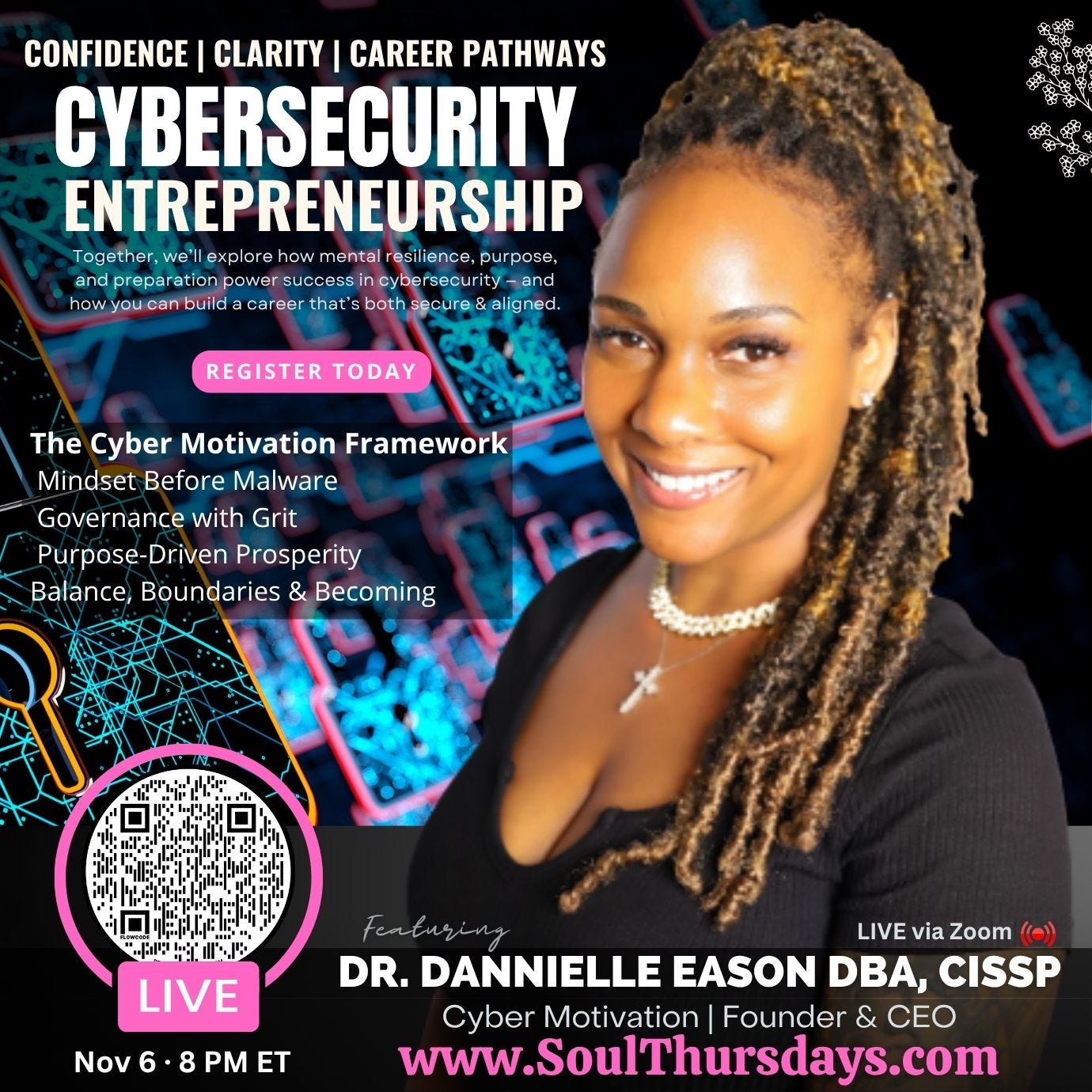In this email:
🍞 Community Recap: 10 Things Black Churches Need to Know
A practical guide inspired by our national discussion on the SNAP Benefits Crisis — how churches can prepare, organize, and sustain food security in uncertain times.🎙️ Thursday, November 6, 2025 – Live Episode Thursday: CyberSecurity: Mindset Before Malware
Learn how faith-based organizations and small nonprofits can protect their data, reputation, and community trust before a breach happens.
Community,
We’re stepping into a moment that can’t be ignored. Across the country, Black churches are doing what we’ve always done — feeding people, filling gaps, and holding communities together. But we have to tell the truth: churches cannot carry this forever. With Congress stalled and no clear plan to return, SNAP and other essential programs are at risk of closing indefinitely, along with the federal jobs that sustain them. That means families will lose benefits, workers will be furloughed, and local ministries will once again be on the front line of survival.
If you missed the live Soul Thursdays discussion, here’s your recap — the Top 10 Things Black Churches Need to Know to Get Ready.
This list wasn’t written by outsiders looking in — it was created by our community, for the greater community. Every insight, strategy, and reflection came from pastors, farmers, public health workers, therapists, and neighbors who showed up to share what’s working on the ground.
So how do we prepare — practically, spiritually, and collectively — for what’s ahead? Below are ten key takeaways from our national conversation to help churches, leaders, and families stay ready before the next crisis hits.
🎙️ LIVE This Thursday, November 6, 2025
🎙️ Thursday, November 6, 2025 – CyberSecurity: Mindset Before Malware
Guest: Dr. Dannielle Eason, DBA, CISSP – Founder & CEO, Cyber Motivation
🕒 Time: 8:00 PM ET
📍 Location: Virtual (Zoom)
🔗 Register: SoulThursdays.com
💡 Episode Summary:
This Soul Thursdays Live session dives into the human side of cybersecurity. Dr. Dannielle Eason, a Cybersecurity Governance and Risk expert, explores how mindset, purpose, and preparation power success — both online and in life.
We’ll examine how confidence and clarity create strong cyber leaders, and how faith, discipline, and personal resilience build a career that’s both secure and soul-aligned.
The Cyber Motivation Framework:
🧠 Mindset Before Malware
🔐 Governance with Grit
💼 Purpose-Driven Prosperity
🧘🏾♀️ Balance, Boundaries & Becoming
✨ Cyber Motivation: Confidence | Clarity | Career Pathways
🍞 Top 10 List: Things Black Churches Need to Know
A practical guide inspired by our national discussion on the SNAP Benefits Crisis — how churches can prepare, organize, and sustain food security in uncertain times.
1. Readiness Starts with Reality — Not Denial.
As Calvin said: “Food insecurity isn’t new — it’s been woven through our story.”
Black churches must recognize that hunger, economic instability, and systemic neglect are not abstract issues, but recurring emergencies.
Waiting for Washington to fix it isn’t a strategy — preparation is.
2. The Church Is Not the Building — It’s the People.
Felicia reminded us that being “ready” doesn’t mean having a big facility or budget.
It means mobilizing members — teachers, gardeners, cooks, organizers — and making the congregation a living organism that acts beyond Sunday.
3. Privacy and Dignity Matter.
Jai emphasized: “Some folks won’t ask for help because they don’t feel safe.”
Trust is readiness. Churches must protect confidentiality, avoid gossip culture, and make asking for help as normal as asking for prayer.
4. Kindness Is a Form of Readiness.
Randolph said it best: “A part of getting ready is kindness.”
Food distribution is logistics; compassion is ministry.
Apathy kills faster than hunger. The prepared church leads with empathy, not judgment.
5. Rebuild the Network — Not Just the Pantry.
Sace’s story from New York revealed the truth: “It wasn’t one pantry that fed me. It was six or seven.”
Readiness means collaboration across churches — Baptist, AME, COGIC, non-denominational — creating local food networks that share resources and schedules.
6. Bring Back “Gleaning.”
Terry from St. Louis revived a forgotten practice — the biblical act of gleaning — letting communities collect leftover crops after harvest.
Partner with local farms, cooperatives, and gardeners to keep produce flowing and dignity intact.
7. Prepare the Whole Person — Not Just the Pantry.
Val from Georgia reminded us: hunger isn’t only physical — it’s psychological and systemic.
When SNAP ends, stress rises, depression spreads, and health declines.
Churches must link food aid with mental health, medical referrals, and family support.
8. Don’t Wait to Be Asked — Offer First.
Val said: “Don’t make people ask. Take a bag of food to them.”
Readiness means proactive love — inviting furloughed workers, single parents, or elders over for a home-cooked meal before they reach crisis.
9. Store Up Now — While You Still Can.
The prepared church teaches households to “store up” — not out of fear, but foresight.
Buy canned goods, cooking staples, and vitamins while affordable.
Encourage church-wide pantry drives and meal trains for neighbors in need.
10. Feed the Spirit While Feeding the Body.
Mary Jo ended the night reminding us:
“During the bus boycotts, we survived because we relied on each other.
The church was our backbone. We can do it again.”
The real preparedness isn’t panic — it’s faith in action.
A ready church prays, plans, and pours out love without waiting for permission.



